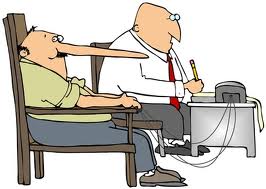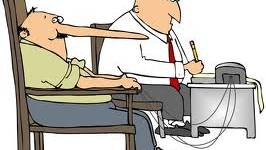Lie Detectors are Voodoo Psychology
Source: science20.com
 It seems that one continuously hears about individuals passing or failing the lie detector, and despite many questions regarding its veracity, people still assume that there is a scientific basis for its use.
It seems that one continuously hears about individuals passing or failing the lie detector, and despite many questions regarding its veracity, people still assume that there is a scientific basis for its use.However, lie detection, or polygraphy is not based on science. In fact it isn’t based on much of anything, except psychological manipulation of the subject under the guise that taking the lie detector may cause them to confess, because they believe it is based on science.
In short ... it’s voodoo psychology.
The first problem is in what the polygraph, or lie detector actually measures. The lie detector measures blood pressure, heart rate, respiration, and galvanic skin response or skin conductivity. Therefore the first scientific problem that must be addressed is what the correlation with these physiological measurements has to do with deception. It seems clear that the objective is to measure anxiety, but this presupposes that individuals become anxious for the same reasons and under the same circumstances. Since there is no context for these measurements by themselves, the thinking is that by asking some control questions, a kind of baseline can be established against which deception can be measured.
However, the problem with that, is that it presumes that individuals react in a predictable manner with specific traits associated with deception. In other words, the underlying "theory" is that physiological reactions will occur because of "guilty knowledge" in whatever is being investigated.
This brings us to another problem with the polygraph and that’s the definition of deception. In this case we are looking at a specific psychological condition in which the subject must keep two entirely separate but plausible scenarios in their mind during the interrogation. One must reflect the "truth" while the other is the "lie" or the story that is intended to deceive the interrogator. Of course, this renders the polygraph totally inappropriate in those situations where an individual believes what they are saying. So, in instances of UFO witnesses or witnesses to paranormal phenomenon, the use of the polygraph is completely irrelevant unless the sole purpose is to establish whether the subject is simply making up the story. Truth is entirely subjective and the subject that believes what they are saying is not being deceptive regardless of how wrong their information may be.
Despite some of the obvious difficulties with such assumptions, there has been no scientific testing that establishes that such a correlation exists, let alone exists consistently enough to be interpreted as being deceptive. People may be anxious because they are lying, but they may also become anxious because they are afraid the examiner thinks they are lying. Instead of "guilty knowledge", they may experience a guilty reaction over an unrelated event. More importantly, it fails to consider the issue of a psychopath that may not have any anxiety over their crimes and therefore escape detection. Essentially the entire premise on which lie detection is built consists of a variety of assumptions which have never been demonstrated to be valid.
Presumably some of these difficulties can be overcome because of the expertise of the examiner. Not really.
Here is a link to a checklist for finding a qualified examiner.
Apparently the requirements to become a polygraph examiner are somewhat vague. Despite the claim that such an examination is a psychology test, there is no requirement that one be a psychologist, or even have a psychology degree.
"Polygraph examiners often have experience in law enforcement or investigations, but a background in psychology or behavioral science is also beneficial. Polygraphists work in the public and private sector, and many are employed by local, state and Federal government agencies."
http://education-portal.com/articles/Become_a_Polygraph_Examiner_Education_and_Career_Roadmap.html
It would appear that the actual training for becoming a polygraph examiner involves approximately 380 hours (about 9.5 weeks) of training at an accredited Polygraph school.
Claims of accuracy abound, but generally this is promoted by polygraph examiners, so it is a bit of a biased perspective. Even if we were to accept an accuracy rating of 92% to 98%, this means that of 100 suspects, 2 to 8 would return bogus results. While the actual guilty party might be in this group, it doesn’t bode well for the innocent individuals that will have been accused as well.
[...]
Read the full article at: science20.com






















